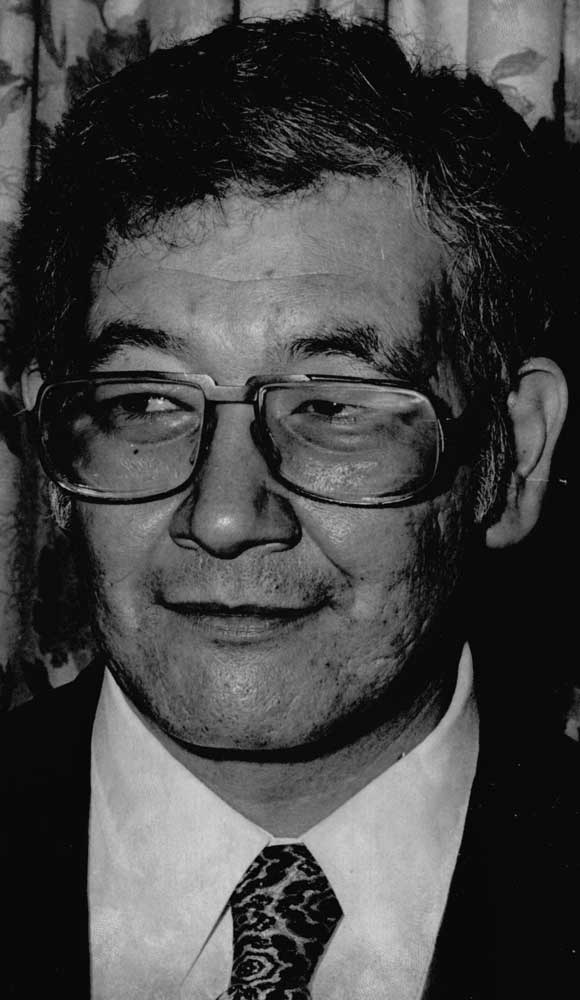
The Encyclopedia of Oklahoma History and Culture
MOMADAY, NAVARRE SCOTT (1934–2024).
N. Scott Momaday, one of the most imaginative southwest American Indian writers, was born February 27, 1934, at the Kiowa Indian Hospital in Lawton, Oklahoma, to Alfred Momaday (Mammedaty), a Kiowa painter, and Natachee Scott, a part-Cherokee woman whom her husband’s Kiowa people perceived as an unwelcomed “outsider.” The family later moved to New Mexico and Arizona to live on the Navajo, Apache, and Pueblo reservations, and the parents taught school. As a child growing up among various Indian tribes in Arizona, Scott Momaday developed an appreciation for the healing power of stories and their words.
After receiving a bachelor’s degree in political science from the University of New Mexico, he submitted a few poems to a creative writing contest sponsored by Stanford University. There Ivor Winters, professor and established poet, secured a scholarship for the young man and became his mentor. Momaday remained at Stanford to earn a master’s and Ph.D. in English and continued to write fiction and poetry.
Momaday’s autobiographical works include The Journey of Tai-me (1967), The Way to Rainy Mountain (1969), and The Names: A Memoir (1976), all of which draw upon Kiowa stories, tales, myths, and memorabilia to build a record of family and tribal history. His two novels, House Made of Dawn (1968) and The Ancient Child (1989), explore the problem of marginalization that American Indians suffered, along with their attempts to mediate their internal struggles by reconnecting with their tribal heritage. House Made of Dawn, which introduced a new technique in the American Indian narrative style, quickly elevated him to a prominent position in American letters and won him the Pulitzer Prize for Fiction in 1969.
Momaday’s poetry reflects his interest in Indian cultures. In particular, the works Angle of Geese and Other Poems (1974), The Gourd Dancer (1976), In the Presence of the Sun: Stories and Poems, 1961–1991 (1992), and In the Bear’s House (1999), reflect his continuing concern for Kiowa culture, history, song, ceremony, and myth and also reveal the post-symbolist technique that he learned from his Stanford mentor, Ivor Winters. The culmination of Momaday’s poetic achievement is most apparent in the Bear’s House collection, which reveals his deep fascination with the bear figure, a Kiowa healing force that often mediates between the human and spirit worlds. In the Bear’s House is a montage-like selection of poetry, dialogue, drawings, and paintings related to Kiowa bear myths. Momaday blends Kiowa and Christian spiritualities in an effort to superimpose the past upon the present, creating a remarkable fusion of two seemingly divergent cultures.
At the end of the twentieth century N. Scott Momaday served as Regents Professor of English at the University of Arizona. There he continued to write stories and poems about the American Indian experience. Momaday died on January 24, 2024, in Santa Fe, New Mexico.






